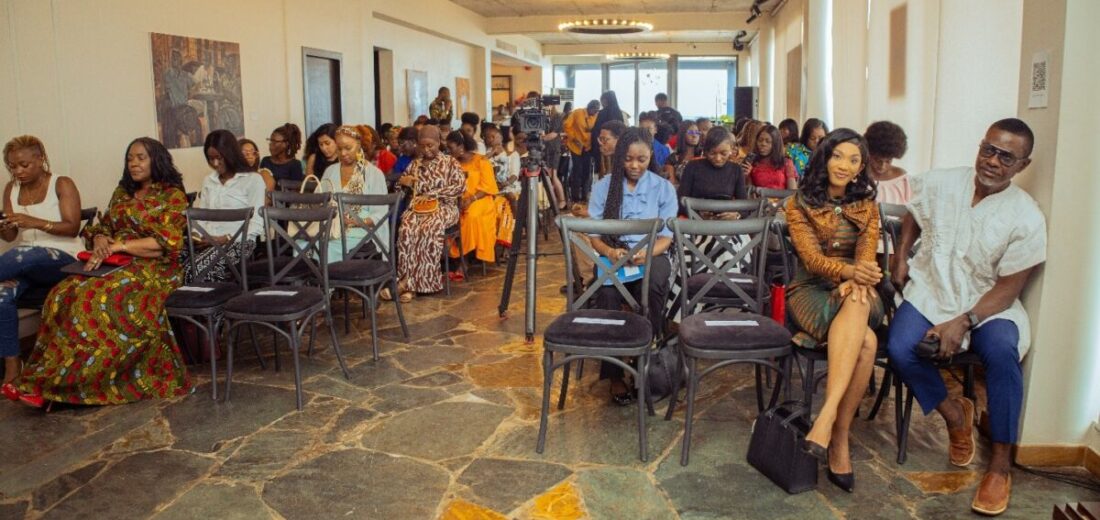
Stories Only She Can Tell: HerPress Summit 2025
If media had the potency to write with empathy, what different would it make in storytelling?
I often wonder this, as I lay back observing the nuanced scope of media at play _from radio, TV, print, to contemporary media. The stories are being told. Questions are asked. Content is created at a staggering pace. Numbers amassed. But beyond this loud orchestra of production and the generic mandate we seek to fulfil, where is the voice?
Where is the voice we so desperately swore to amplify?

Too often, in our race to chase deadlines and desperate balance of clicks and reach, we reduce our stories to mere commodities. In the process, we lose the soul of the people whose lives we claim to represent. In the pages we wield, they are subject of headlines, and trauma porn to elicit pitied emotions. Take for instance, the woman in her mid-40s who sleeps on a makeshift cardboard in the open in hopes to make bread for her little ones. The woman who accepted marriage and motherhood before she could identify her true self. The woman who calls her biological clock a curse she inherited for being overly ambitious in the swift phase of life. The woman who stopped after attaining her Bachelor’s Degree and settled for a man before she ends up in the prayer camps. How about the girl child who has never had a taste of liberation beyond rape, child marriage, and domestication?
Beyond reporting on this victimization, how are we telling HER story as women? Are we just magnifying and gratifying in the pain, mistakes and the failure_ a caricature of sympathy? Or do we dare to make her shrinking voice loud, not as a victim of history, but as the author of her future?

Gifty Bingley Head of Public Information at AU on the left with Amelley Djosu creative producer and on-air personality with Multimedia Group and a participant of HerPress followership
The central failure is not a lack of coverage but a lack of nuance. Even when she stayed up late, catering to every household chore while her husband played draft, drank, and demanded sex, she still gathered the children by the fire side to tell stories. Stories of hope, stories that made her present invincible and blurred decades of tears, molding them into a renaissance. Those folktales have stood the test of time, shaped into sacred traditions and literature. The traditional woman knew her mandate.

Gifty Bingley on the left -Head of Public Information at AU, Gabby Producer at CNN, Portia Gabor and Israel Laryea celebrated journalists in Ghana
There are stories only empathy can tell, there are stories only SHE can tell.
At the just-ended HerPress Summit in Osu, themed “Stories Only She Can Tell,” an all-female in media summit which brought together media professionals and student journalists within the media fraternity this truth was laid bare. Sitting among the audience, I was struck by Israel Laryea, a celebrated journalist at Multimedia Group, when he said: “Women are not the marginalized group in media, they are voices who have long accepted to be conditioned to feel they are marginalized and must fight for their place. Media is her tool. Women are natural story tellers.”
 I sitting among the audience
I sitting among the audience
His words struck me like a rebuke and a reminder. For too long, the narrative of women in media has been confined to a story of lack_ lack of representation, lack of recognition, lack of power. An overstretched narrative blurred from perspective and reclamation. But what if the lens shifted? It is time to turn to the woman herself, to ask: What is your mandate?
In the outpouring of her void, we would understand her voice is littered across politics, education, sports, business, health, and every corridor of society and not the silence we so seek to amplify as the cause of underrepresentation. Our voice is faint because we choose to compete and tell stories like the copied story teller, mimicking each other’s scripts, rather than crafting their own. If empathy had the microphone, it would not only amplify the struggles but also the triumphs, the resilience, the mundane acts of courage that often go unrecorded.
How different would media be if empathy had the microphones? Perhaps stories of young women rising in classrooms, on football pitches, and in parliaments, would not be treated as exceptions, but as expectations. Perhaps, instead of framing women’s stories as battles for inclusion, we would frame them as blueprints of society’s heartbeat.

Traygan a talented songstress performing the event
As you walk into the news room, studio, and the field always be reminded there are stories only you can tell. Our mother’s voice is flicking from decays of dance, lullabies and folktales she had sang and preserved across generations. It’s time you craft and tell your stories for your generation and beyond least we fail in mandate.
If empathy held the microphone, storytelling would no longer be a mirror of pain alone, but a conduit of possibility.

Leave a Reply